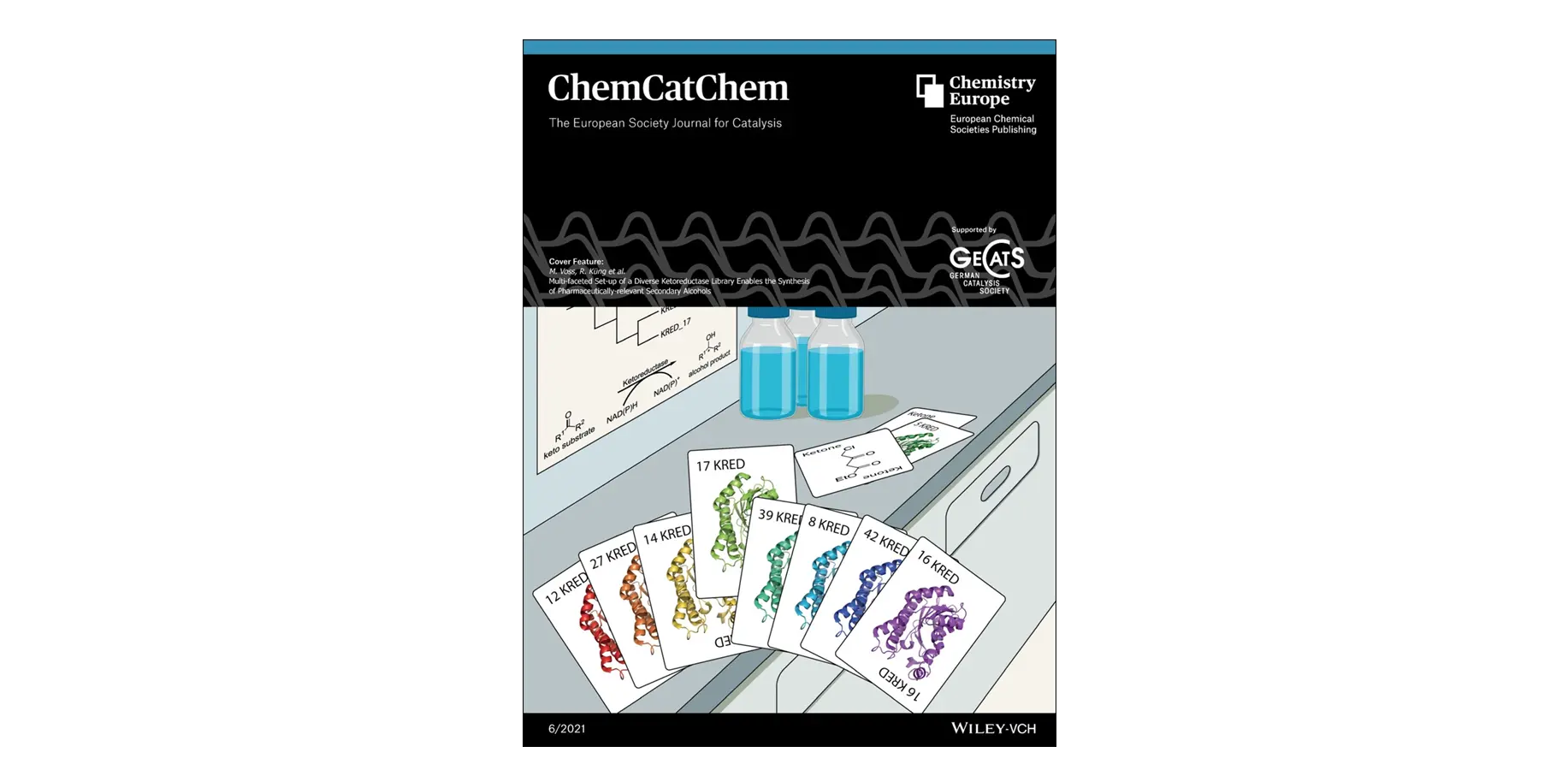A Ketoreductase Library for the Synthesis of Pharmaceutical-relevant Alcohols
Off-the-shelf enzyme libraries allow fast screening for suitable readily available biocatalyst candidates and thus increase the competitiveness of biocatalytic reaction steps in chemical process development.

“Multi-faceted Set-up of a Diverse Ketoreductase Library Enables the Synthesis of Pharmaceutically-relevant Secondary Alcohols» by Moritz Voss, Robin Küng, Takahiro Hayashi, Magdalena Jonczyk, Michael Niklaus, Hans Iding, Dennis Wetzl and Rebecca Buller is published in ChemCatChem.
Ketoreductases (KREDs) catalyze NAD(P)H dependent carbonyl reductions. In industry these enzymes are commonly used in the asymmetric reduction of prochiral ketones and aldehydes, or less frequently in the oxidation of alcohols. KRED catalyzed transformations are important steps in e.g. in the industrial production of ibrutinib, atorvastatin or angiotensin-converting enzyme (ACE) inhibitors.
Analyzing literature and available genome data as well as screening microbial strains from Swiss sources a library consisting of 51 KREDs was constructed and characterized. Of these, 29 enzymes have not been described before and 18 exhibit anti-Prelog preference complementing already described KREDs which follow Prelog’s rule.